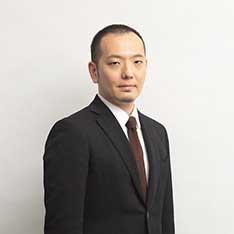
On July 20, 2018, the Act to Implement Specified Integrated Resort Areas (the “Casino Implementation Act”) passed the Japanese Diet which legalized gambling to be operated by private entities in Japan. While there are many aspects which have been delegated to the determination by the ministry ordinance (in fact there are 331 items that are up for the ministry ordinance to determine), below are several key points of the Casino Implementation Act:
- Size of casino facilities
While the Casino Implementation Act is still silent on the actual limitation on the size of the casino as this has been relegated to the cabinet ordinance (Article 41 of the Casino Implementation Act), the working team concerning the ruling party’s IR Implementation law issued their opinion regarding the size of the casino floor. Considering that the location and size has yet to be defined, rather than setting a limitation on the absolute value, it was determined that the gross floor area for the casino in IR facilities shall be limited to 3% or less.
The basis of the calculation shall be 3% of the “gross floor area” and not the land area, which should ensure the casino to be “only a part of the facilities.” - Limitation on the number of times of entry and means to verify identity
Chapter VII of the Casino Implementation Act provides for a strict limitation on the number of times of entry and entry fee to prevent problem gambling. While there is no limitation on the number of times of entry for non-Japanese residents, the Japanese residents are limited to “3 times in 7 days + 10 times in 28 (Article 69 of the Casino Implementation Act), and “My Number cards” shall be utilized for the verification of identity and the number of times of entry (Article 70 of the Casino Implementation Act ).
- Entry fee
The entry fee will be imposed to Japanese residents in the amount of 6,000 yen, the half of which shall be paid to the national government (Article 176 of the Casino Implementation Act) and the other half to the local government (Article 177 of the Casino Implementation Act).
- Levy
While there was a discussion of whether a progressive system could be imposed, since this may reduce the incentive for entities to expand their business by additional investment and presents a risk to discourage investment to realize the commonwealth, the levy was fixed at the rate of 30% of gross gaming revenue, half of which shall be paid to the national government (Article 192 of the Casino Implementation Act) and the other half to the local government (Article 193 of the Casino Implementation Act).
- Number of IR areas
Article 9 of the Casino Implementation Act provides that the number of location shall be limited to three (3). However, the Casino Implementation Act provides that after five (5) years have passed since the first designation, the Casino Implementation Act as a whole shall undergo a review and after seven (7) years have passed since the first designation of the IR, the number of location will be specifically reviewed giving consideration to local areas which desire and are preparing to establish the facilities while securing a period for determining the effect of IR (Article 4 of Supplementary Provisions to the Casino Implementation Act).
- Relationship with cities where the facilities will be built
The Casino Implementation Act provides that the enforcement policy to be prepared by the local government requires consent of the city where the IR will be actually located (Article 6 of the Casino Implementation Act), requiring a method of consensus-building at the ground level.
As mentioned above, while the details on how to implement casinos are to be determined by the ministry ordinance, some of the major items which have been debated for some time are now clarified by the Casino Implementation Act to a certain extent, and it should be fair to say that Japan has taken a big step closer for the first ever opening of the legalized casinos.
当該分野に精通する弁護士等
石原 仁 HITOSHI ISHIHARAパートナー カジノを含めた『ゲーミング』を取り扱う大学教授、弁護士、規制当局担当官、査察官、コンサルタント、会社重役によって構成される、国際 的業界団体であるInternational Masters of Gaming Law(「IMGL」)に、日本の弁護士として唯一人、会員資格が認められており、数多くの事業者、外 国弁護士事務所、及び政府機関に対し、日本の特定複合観光施設(IR)関連法及びゲーミング規制に関するアドバイスを提供しています。その豊富な経験によって、複数の業界誌から「Gaming Lawyer of the Year in Japan」を受賞しています 。 また、知的財産法の分野の中では、ライセンス契約等の知財契約取引案件を数多く担当しており、7年以上のアメリカ在住経験を生かし、多国籍間の契約交渉・紛争解決、クロスボーダーM&A、通商、及び会社運営全般(コーポレート・ガバ ナンス、コンプライアンス、JV運営、不祥事対応等)について、クライアントのニーズに合わせた、適確且つ迅速なアドバイスを行うことを得意としています。 |  |
関連する著書・論文・セミナー等
- [Seminar] Global Gaming Reforms (2015年3月)
- [Publications] The Policy Objective of IR Bill –what is the objective and how should it be reached– (2015年4月)
- [Publications] Overview of the Japanese Casino Bill (2015年5月)
- [Publications] The International Comparative Legal Guide to: Gambling 2016 (General Chapter) (2015年11月)
- [Publications] Juego en Japon Legalizacion Primera Fase (2017年1月)
- [Publications] Japan's Gaming Reform (2017年1月)
- [Publications] The Gambling Law Review Second Edition (Chapter 15 Japan) (2017年6月)
- [Seminar] IR Casinos in Japan: The Next Big Thing in the Casino Industry (2017年9月)
- [Publications] Concepts to Implement An Integrated Resort in Japan (2018年2月)
- [Publications] The Gambling Law Review - Edition 3 (Japan Chapter) (2018年7月)
- [Publications] Legalization of Casinos in Japan: The Japan’s Casino Implementation Bill (2018年9月)
- [Publications] Introduction to the Japanese Integrated Resort (IR) / Casino Law (2018年9月)
